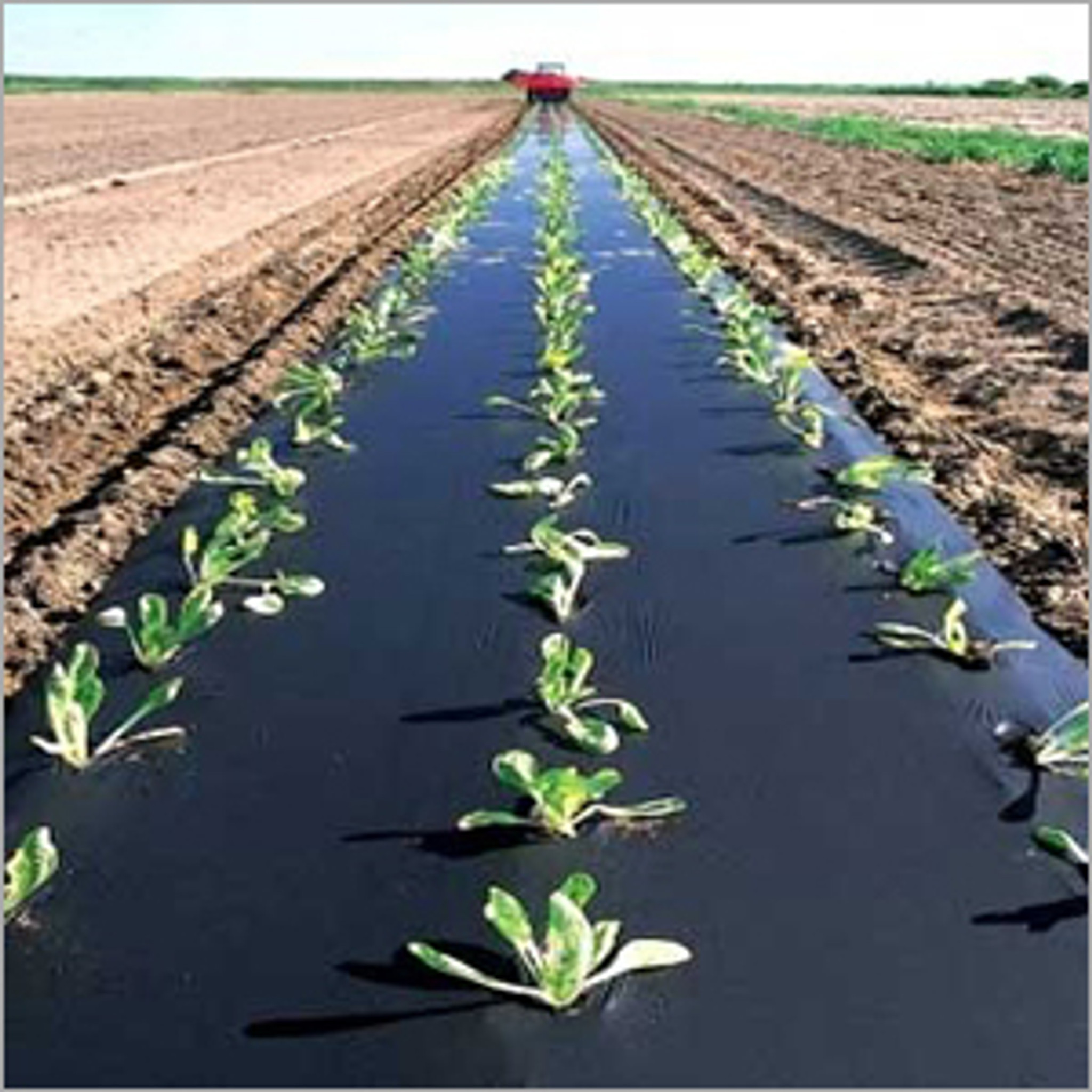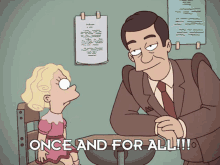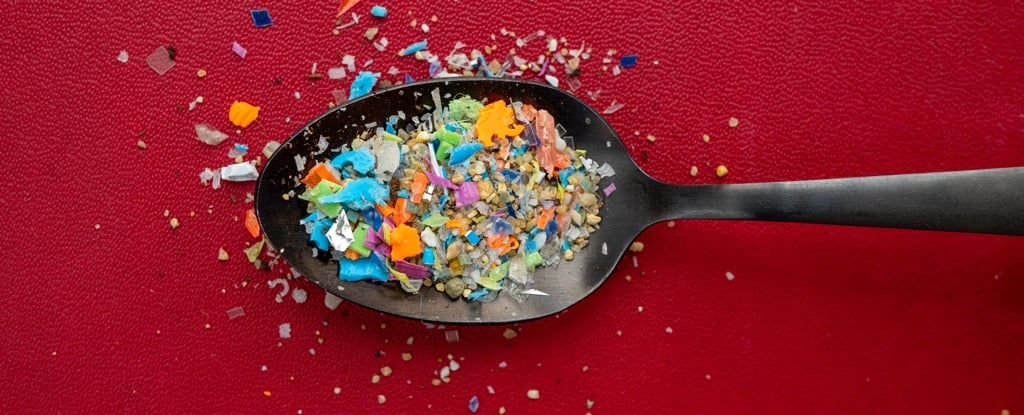Or several trillion very small problems.
We’re all trillionaires! 🎉
DiamondPlastic Hands 🙌 Tothemoonoceanour bodies! 🚀Found the crab 🦀
Studies have identified some of the main sources of microplastics as:
- plastic-coated fertilisers
- plastic film used as mulch in agriculture
WTF?
- plastics recycling.
Uuuuh…
- plastic film used as mulch in agriculture
Wtf. Where and why?!
It’s the black plastic bag material that people used to cover their soil and poke holes through for their crops.

I never thought it was called plastic mulch though.
It serves the same purpose as actual mulch, which is blocking out weeds
Yes, but mulch has the meaning of ground up wood, so I think most people would think it was ground up plastics.
If it was ground up plastic it would probably just get carried off by the wind.
Or plastic greenhouses
Like, everywhere?
https://duckduckgo.com/?q=plastic+film+used+as+mulch+in+agriculture
deleted by creator
Plastic was never meant to be recycled.
So, what you’re telling us is, they’ve been lying for decades?
Yup passing on the responsibility from the manufacturer to the consumer
Yep
Other great source of plastics are synthetic fabrics. It releases a lot of micro particles in the water during washing and drying cycles.
Have you seen the process used in plastic recycling? The plastic is literally triturated into tiny bits before being heated up for the next stages.
Edit: why the downvotes? I’m just trying to give some context on why plastic recycling is a great source of microplastics
Maybe global warming will melt all the microplastics into one big macroplastic and that problem will be 100% solved.

Do our testicles all melt together?
Biggest sources:
- 7.6 Mt from macro plastics breaking down
- 1.3 Mt from paint
- 1.0 Mt from tyres
10-40 Mt released into environment/year, and increasing.
I’m kinda surprised that more comes from paint than tires.
I think it depends on measure, if im not mistaken, by weight arohnd 50% of microplastics are tire dust.
Also depends on where you’re measuring. They make up a ton of the plastics in stormwater runoff for example. Sometimes up to 95% from what I found. And that stormwater often ends up in our drinking water.
Still both from automobile infrastructure. /c/fuckcars bleeding into every Lemmy…
You only think that way because the material for a tire is all in one place and easy to see.
Paint on the other hand is effectively invisible when we ‘inventory’ a space mentally.
So a tire in the middle of your living room seems like a lot of rubber but all the paint over every inch of the wall in the same room doesnt, even if the room is big enough for the paint to fill the volume of the tire.
Over 80% of microolastic production coming from macro plastic breakdown feels pretty bleak.
Plastics industry: “See?! We told you plastic decomposes and doesn’t just stay in landfills forever. Happy now?”
I am not happy now.
A race to see what will kill the most of us first. The plastic or anthropogenic climate change.
Plastic will probably only make us infertile while climate change will kill us AND already stop us from reproducing (or do you feel a kid born today has a good perspective on it’s future?).
Don’t forget Antimicrobial resistance (AMR)!
deleted by creator
Don’t forget Nuclear War!
The UN’s Global Plastics Treaty is certainly a step in the right direction. I’m not sure what can actually be done about the problem, especially with how pervasive synthetic materials are throughout the world. And what is medicine supposed to do? Plastics revolutionized sanitation, particularly in the medical field. Very complicated issue to resolve.
There are certain industries, like medical, that would probably be one of the last, if ever, to do away with plastic, simply due to the upsides. The only option we have as a species is to create a truly biodegradable, non-toxic, easily obtainable and cheap to produce alternative.
Haha who am I kidding, we are fucked, plastic manufacturers go brrrrrrrrr.
a truly biodegradable, non-toxic, easily obtainable and cheap to produce alternative
The problem in using biodegradeable materials to build things is that it degrades. Do you really want your wiring insulation decaying?
Yeah, for things that are supposed to endure, biodegradability is indeed problematic. However, using plastics for things such as wiring insulation would be still a potential source of microplastics even in a world where all plastic was abandoned in favor of fungi and paper packing materials. Ain’t no easy solution, unfortunately.
Steel decays via rusting as its outer coating is sacrificed to corrosion. Civil features decay as erosion degrades it over time. Wooden power poles decay as their treatment degrades and fungi/insects attack them. Outdoor wiring decays if in direct sunlight due to any sunlight resistive coating degrading over time to UV radiation. Oil used as lubricant in motor vehicles and as insulating fluid in electrical equipment degrades over time due to thermal cycling, oxidation, and moisture.
The point I’m making is that things degrade naturally. Plastic is no exception, although engineers have been able to make certain decisions with it such that constructions can last for decades.
If we can make plastic by default biodegrade naturally, and at a much faster time scale than today’s oxo-degradable and biodegradable alternatives, then it still allows for scientists and engineers to select for plastics that have been specifically engineered for the application via coatings and whatnot, comparable to steel and wood.
It’s possible to do so. We just need to flip the script and make biodegradation the norm and not the exception
Medical and electrical insulation. Two places where plastics are better than the alternatives.
Plastics are also used extensively in the electricity sector as insulation for conductors, support structures, etc.
We need our vendors of these products to start addressing this issue, and unfortunately I don’t think this is going to come from the consumer end. Maybe for alternative insulating liquids for transformers and whatnot like with Cargill FR3 or Shell MIDEL products, but clearly more needs to be done. Schneider Electric is a good example of a company leading the way
Plastic-coated fertilisers?
Rally?
WTF do we need plastic-coated fertilisers for?
to grow plastic infused plants, of course
Now sit down and eat your plasti-corn. There are children in other countries that have to eat normal corn.
Controlled Release Fertilizers (CRF) are coated with a tiny layer of polymer which allow to release nutrients in a very timely and targeted way to various crops (trees, flowers, some cash crops) and used in closed environments such as potting plants or greenhouses.
So it has its use. Guess we’ll need to find an alternative to using polymers now (among a ton of other work).
The article was very well written. Unfortunately, 90% of the people I’d forward it to would be TLDR…
The 7000 papers were really well written. Unfortunately, 90% of the people I’d forward them to would be article…
There are many reasons we are screwed as a species. There’s pretty much nothing I can do about it, unfortunately.
I’ll go jerk off for a bit, maybe it’ll be better by the time I m done
Not much is going to get better in 12 seconds.
It’s my fourth time today, it’s gonna be a bit…
Now you’re speaking my language, come and shake my hand… actually, nevermind.
take your time with it. make that shit special.
And if you use your imagination, it’s more eco-friendly.
Come to think of it, unless you’re doing something that requires fewer calories, other activities would likely have a bigger carbon footprint.
brb, taking a break from the internet to help the environment.
Rather than take a defeatist veiw from this line if thinking, it will do well for your mental health to first spend more time, energy and thoughts on things you can control. Not just things related to environmentalism, but broadly reduce energy, engagement and focus from the things you don’t have significant control over and direct them to those things you do have control. It’s good to get a broad picture and observe the world around you outside of your control in small doses, but it’s easy to over indulge in an unfocused survey of problems in the world, especially on social media. (I include Lemmy communities in the social media category).
Furthermore, when you do engage with these problems, do so with more narrow focus and in more depth with an eye towards understanding the level of impact the problem has and what organizations or policy positions you can support to amplify your limited influence over the issues that causee the problem. In this way you can mitigate the feelings of helplessness and sense of there being many existential and imminent problems you need to contend with but cannot remedy. You can turn seemingly untouchable solutions into real possibilities without overwhelming your emotional capacity by working with others.
I appreciate this, it’s really good advice and what I try to do, but I can always be better.
At the moment I volunteer for a food bank that focuses on redistributing surplus food stocks from businesses instead of having them go to the bin. This is because I abhor waste.
I also volunteer for the Scouts because it upsets me to see young people glued to screens all the time, never leaving their home, and not knowing what the real world and real social situations are. Also, I missed out on a lot of these things as a child because I shied away from them and nobody encouraged me. I enjoyed hiking with my older brother and my uncle, but the premise of joining the Scouts was never even given to me as an option.
It’s amazing to see kids say “what’s this plant, what’s that tree, what is that mushroom, can I eat that berry?” and sometimes being able to answer them, or at least tell them how they can find themselves an answer. “Take a picture of it, do some research, tell me what you find out next week”
I want to thank you for your reply. Hearing about someone like you and your attempt to improve your community and the world I the ways you can is so uplifting!
People are social (even the introverts) and the return on in person, deep social interaction is another reason it’s important to fight the allure of convenience of online media being ones primary and most influencial social interaction. I love that you’re doing it!
Can’t we just inject ourselves with plastic eating bacteria or something?
We just need to turn up the UV lights voltage and melt the plastic out. Is that something we could look into?

We are the plastic eating bacteria.
If we knew of bacteria that cleanly ate plastic, we probably wouldn’t be riddled with micro plastics 😉
We know of them and are working on making them more efficient
Those are Ideonella, and the byproducts are still toxic tu humans. Wouldn’t work.
So what does it do? Cancer?
In regards to humans, progress is being made. In coming years, expect greater clarity about effects on our bodies such as:
- inflammation
- oxidative stress (an imbalance of free radicals and antioxidants that damages cells)
- immune responses
- genotoxicity – damage to the genetic information in a cell that causes mutations, which can lead to cancer.
TL;DR yes, cancer. It also fucks with wildlife (blocking intestines, giving off poison)
It’s making men infertile. theres even a shortage of viable sperm today around the world
Ok, that’s one positive at least.
Good chance it probably is, possibly increase chance for asthma, chance for heart attack, another is it probably makes us infertile probably a good thing depending how you think of it.
Is this stuff you know or are you guessing?
Mostly guess though I think remember reading some of it. Here are the links if your interested.
4.1 Fertility effects in adult males
Microplastics Linked to Heart Attack, Stroke and Death
Detrimental effects of microplastic exposure on normal and asthmatic pulmonary physiology
Could Microplastics Be a Driver for Early Onset Colorectal Cancer?
Disclaimer not a doctor, just some random guy in the internet.
I find little shards of plastic in the vegetables from the supplier at work quite often. Sometimes I plate a dish and spot a bit of blue where it shouldn’t be.
Yummm, fruity pebbles
And yet doctors insist I’m not getting enough fiber!




















